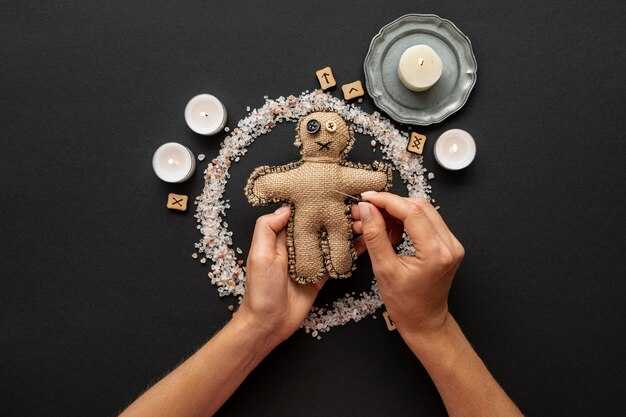Make no mistake. This isn’t a tale about a broken heart — it’s a judgment on poor choices, a meticulous bill itemizing every cost of regret. They grew so used to you that your presence stopped feeling like a blessing and started feeling like a right, as constant and unquestioned as the air they inhale. Gratitude never occurred to them until the air grew thin. Every extra chance you handed over wasn’t seen as mercy; it was read as entitlement. They mistook your boundless patience for frailty, your deep empathy for gullibility, and your steady love for desperation. That’s how their fear made sense of your strength. And they were catastrophically mistaken. In their map of the world, you weren’t a priority — you were a safety net, the reliable harbor they could always return to after steering themselves into self-made tempests. They overlooked one fundamental truth about harbors: any one of them can be closed forever. Now the gate has been bolted, the check has been cashed, and their emotional bill finally comes due. For the next 24 minutes, we will itemize every charge. This is the nonrefundable cost of the mistake they can never undo: undervaluing you in the beginning.
They confuse the absence of friction with true peace. No hard conversations, no shared expectations, no real intimacy to manage — they call that freedom, but it’s an empty liberty, the hush of an unoccupied house rather than the stillness of a sanctuary. They celebrate having escaped pressure, unaware they’ve swapped acute discomfort for a slow, spreading vacancy. The reckoning doesn’t explode into their life; it infiltrates through the fine cracks of habit. It begins in the tiny, familiar moments you both knew better than anyone else. Their thumb lingers over your name in their contacts — a phantom habit. They reach for you to share a ridiculous meme or an annoying office tale, then the cold fact reminds them that line is gone. A song plays and for a heartbeat they think, “She would adore this,” before reality lands like a punch. Your playlists are no longer theirs to care about.
Days stretch into weeks and the small instants pile up like snowflakes until they avalanche into absence. The silence without your voice becomes thunderous. Experiences go colorless without someone who noticed the trivial details of their day. Achievements taste bland without someone who genuinely celebrated them, failures feel raw without unconditional comfort. Proof of their monumental error accumulates like a case file they can’t close. They’ve lost their most dependable emotional anchor, severed a bond with someone who saw past their defenses and loved what was underneath, destroyed the person who stayed patient while they figured themselves out. Then the brutal accounting begins: comparing the life they have now to the life they discarded. The arithmetic is merciless. They traded the person who knew their favorite comfort food for solitary meals. They exchanged someone who remembered deadlines for the solitary burden of managing everything alone. They surrendered the one who turned a cramped apartment into home in exchange for evenings in echoing rooms. What they believed was merely an ended relationship was in truth the demolition of an entire ecosystem centered on you.
There’s a lie people tell about loss — that time mends all wounds, that memories soften into manageable smudges. For them, time doesn’t heal; it embalms. Memories sharpen instead of fading. Loss doesn’t erase recollection; it immortalizes it. Your absence becomes a tangible presence, occupying space more fully than you ever did. The relic of what they had haunts every corner with an almost supernatural persistence. Every place becomes a museum devoted to the thing they ruined. The café where your first meaningful conversation happened turns into hallowed ground they cannot face. The park of Sunday walks becomes off-limits. Even the apartment that once felt sacred is now a monument to their folly. They can’t prepare coffee without remembering precisely how you took yours. They can’t watch a film without hearing the commentary you would have offered. And the cruelest sting isn’t the fights — it’s the laughter. The perfect small moments they were too distracted to cherish now play on an endless loop with devastating clarity. They recall the cadence of your laugh at a terrible joke, the way your brow creased when you concentrated, the way you relaxed into them at night in a trust they now recognize as a profound gift. How were they so blind?
That ghost accompanies them into every new experience and leaves everything feeling incomplete. At a concert their thoughts crawl to how you would have off-key belted your favorite songs. At a new restaurant they imagine your order. Attempts to build fresh memories are tainted by the specter of the old, an ongoing tally of the barren present against the vivid possibilities they destroyed. Sleep offers no safe harbor; it becomes a trap. In dreams you return — intimacy feels whole, the future intact — and they wake reaching for you, only for the crash of reality to follow. Each morning becomes a fresh reenactment of their mistake, a renewed pain served with the daylight. In those quiet, lonely predawn hours they realize something deeper than mere longing: they’re grieving the version of themselves reflected in your eyes — the person who felt deserving, who had someone who believed in their potential, who enjoyed the shelter of unconditional acceptance. That part of them died the day they let you go, leaving them haunted by what they might have become.
Grief waits like a patient predator; panic is the wildfire that follows. Around the third month, the dull ache flares into raw, burning terror. Initial relief at newfound freedom sours into the horror of solitude. Faced with silent rooms and empty weekends, they suddenly grasp that what they had with you wasn’t just another relationship — it was the one that made all others feel like rehearsals. Now they face an impossible task: replacing the irreplaceable. They throw themselves into dating not with optimism but with frantic, spiteful urgency, scrambling through profiles, refreshing wardrobes, rehearsing charm in the mirror. They tell themselves they want something new, better — but desperation leaks from every move like a bitter perfume. The first dates numb for a little while; anyone willing to sit across from them feels like progress. Then comparisons begin, involuntary and merciless. Their date laughs, but it’s the wrong laugh. Someone’s intelligence doesn’t match the private dialect you shared. A new partner may be attractive, but they don’t trigger that sensation of being seen and safe the way you could with one look. They aren’t competing with people; they’re competing with an idealized, immortal memory they themselves forged. The search becomes a loop of pickiness and panic: someone texts too much = clingy, too little = distant; move slow = lacks passion, move fast = not serious. The real issue isn’t the other person — it’s that no name on the screen is yours. They reject every candidate for the unforgivable crime of not being you.
As failures pile up, the lies begin — to friends and, more harmfully, to themselves. “I’m just having fun right now,” they insist, while their heart screams for the deep connection they threw away. They pretend they’re choosing casual freedom when in reality every attempt ends in an out. Then comes the cruellest test. They meet someone objectively lovely on paper: kind, funny, attractive, stable, genuinely interested. They check every rational box, yet as they sit across from this remarkable human, waiting for a spark, their chest is hollow. Nothing. A terrifying, absolute vacancy. In that silence they finally grasp that they’re not searching for love — they’re hunting you in another body, seeking a copy to plug the U-shaped hole they’d made. It’s a hopeless, impossible quest.
The earlier chapters catalog the loss of you; this chapter exposes the horror of self-recognition. The worst part — the bitterest truth — isn’t only that they lost you. It’s that they arranged their own ruin. Each morning they wake to the inescapable fact that their anguish is self-inflicted. They are both architect and sole inhabitant of the wreckage. There is no one else to blame. No fateful twist, no outside villain. With the cold precision of someone who’s both surgeon and fool, regret becomes a constant companion whispering the same sermon on loop: You had someone who loved your odd humor and you walked away. You had someone who encouraged your wildest dreams and you chose fear. You had someone who believed in your best self and you threw it all away because intimacy frightened you. The voice never tires and it never runs out of proof. Their mind becomes a theater, replaying the same tragic film. They scour the footage, trying to find the moment their fate was sealed — the last time you stopped trying to reach them, the exhaustion in your voice when you gave up the fight for a future they were too cowardly to accept. They remember how you looked: not angry, but sorrowful and understanding in a way that cut deeper because you’d seen their patterns more clearly than they ever had.
They begin to catalogue every misstep: the time they dodged a serious talk with jokes, the evening they declined a plan because they felt tired, the morning you said “I love you” and they answered “thanks” because those three words felt too heavy to carry. Each memory drives another nail into the coffin of their peace. That burden starts to seep into everything: doubt becomes contagious. Decision-making breaks down. If they were so monumentally wrong about you, how can they trust their judgment about anything else? Career choices freeze, friendships are second-guessed, even picking lunch becomes a high-stakes gamble. Their whole decision-making apparatus feels fractured. They learn a brutal life lesson: some mistakes are irreparable. Some words can’t be unsaid. Some squandered chances never return. This isn’t a test you can retake — it was the final exam on love, and they flunked it with the one person who would have given them grace. The weight settles deep, an emotional arthritis that makes daily movement heavy. They lug their failure everywhere, a ceaseless reminder that they alone wrote their own punishment.
And then the last lesson arrives — not in a storm or dramatic showdown, but in the clear, stripped light of a cold morning. It is simple and merciless: some doors, once shut, do not reopen. Some people, when pushed beyond endurance, do not come back. Some chances vanish forever. They learn this through tiny, merciless screens: seeing you move on makes the truth undeniable. You’re not merely angry or taking space; you are genuinely, irrevocably building a life that doesn’t include them. You’re laughing in photos with friends they’ve never met; you’re chasing goals you once only murmured about. Your life looks whole, abundant, complete — without the void they assumed their absence would create. The hardest realization lands: they were never essential to your joy. If anything, they may have been the obstacle. Their hot-and-cold behavior and fear-driven choices were exhausting. When you left, you did not only lose a relationship — you reclaimed peace. The fantasy of a dramatic reunion, the secret belief that you would come back, finally crumbles. There will be no grand gesture, no cinematic reconciliation, no second-act romance. Your chapter with them doesn’t close with a melodramatic finale; it ends with the quiet dignity of someone who loved enough to leave when love alone couldn’t bridge the gap.
There is no tidy closure conversation. Instead there is the dawning awareness that they’re no longer part of your story. Some prices are payable only once, and they already spent their whole account on you. Their patience, your willingness to try again, the hope that they would eventually learn to love without fear — all of that is exhausted. Your tolerance reached its natural limit. This is the final toll: not merely losing you, but losing you for good, living with the permanent knowledge that they held the keys to their own happiness and dismantled everything, choice by choice, until you stopped believing they would ever choose differently. In the wreckage they come to carry this lesson not only as punishment but as schooling — a brutal, permanent education designed to stop them repeating the same crime. The debt has been paid in full. The account is closed. Oddly, in accepting that absolute finality they discover the first real, if solemn, peace since the day they walked away from love.
With that, their narrative of regret reaches its conclusion. Close the book on them, because this last chapter was never about their growth; it was always about your release — the hurt you endured and the patience you offered. When you finally chose yourself, that moment wasn’t a collapse; it was a breakthrough. It wasn’t an ending so much as a commencement. You walked across that stage, took the diploma of your self-worth, and stepped into a new life. Let them remain behind, repeating a lesson they refuse to learn. They belong to the past; you are the future — a future you will build on the firm ground of peace instead of the shifting sand of their approval. Breathe in, and step forward. It is yours.
If these words touched something inside you, declare it below. Write, “I am free as a promise to yourself.” Thank you for being here. If you are ready to keep moving along your path of healing and empowerment, subscribe for more. Remember: your greatest chapter is not the one they starred in — it’s the one you are about to write.


 The Exact Price Avoidants Pay For Losing You.">
The Exact Price Avoidants Pay For Losing You.">

 They Always Come Back: The 3 Avoidant Stages No One Talks About | Mel Robbins motivational speech">
They Always Come Back: The 3 Avoidant Stages No One Talks About | Mel Robbins motivational speech">
 "Relationships Die in the Conversations that Never happen"">
"Relationships Die in the Conversations that Never happen"">
 How do you know when it’s time to walk away…">
How do you know when it’s time to walk away…">
 To są problemy związane z dopasowywaniem się do innych">
To są problemy związane z dopasowywaniem się do innych">
 The Final Cruel Trick Avoidants Use Once You Stop Caring (It Cuts Deep)">
The Final Cruel Trick Avoidants Use Once You Stop Caring (It Cuts Deep)">
 Childhood Trauma and Self-Defeating Behavior">
Childhood Trauma and Self-Defeating Behavior">
 The Silent Closure That Makes The Avoidant Beg For Another Chance | Jordan Peterson">
The Silent Closure That Makes The Avoidant Beg For Another Chance | Jordan Peterson">
 How to decrease her Mental load on Mothers Day">
How to decrease her Mental load on Mothers Day">
 The Relationship isn’t HER job!">
The Relationship isn’t HER job!">
 Anna Runkle Takes Your Questions LIVE">
Anna Runkle Takes Your Questions LIVE">